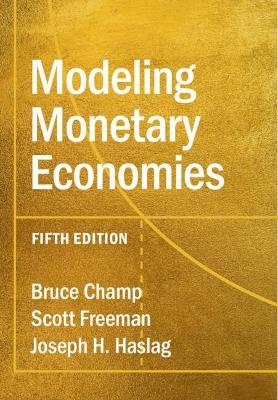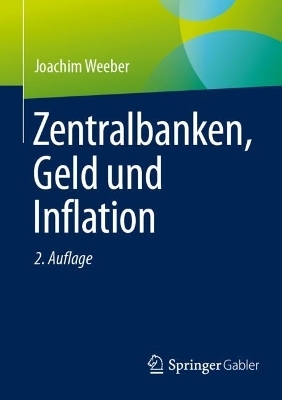
Modeling Monetary Economies
Cambridge University Press (Verlag)
978-1-316-51521-1 (ISBN)
Thoroughly updated and expanded with a new chapter on blockchain and increased coverage of cryptocurrency, as well as new data, this established advanced undergraduate textbook approaches the subject via first principles. It builds on a simple, clear monetary model and applies this framework consistently to a variety of monetary questions. Starting with trade being mutually beneficial, the authors demonstrate that money makes people better off, and that government money competes against other means of payments, including other types of government payments. After developing each of these topics, the book tackles the issue of money competing against other stores of value, examining issues associated with trade, finance, and modern banking. From simple economies to modern economies, the authors address the role banks play in making more trade possible, concluding with the information problems plaguing modern banking.
Bruce Champ was a senior research economist at the Federal Reserve Bank of Cleveland, and passed away in 2013. Earlier, he taught at Virginia Polytechnic Institute, the Universities of Iowa and Western Ontario, and Fordham University, New York. Dr. Champ's research interests focused on monetary economics, and his articles have appeared in the American Economic Review, the Journal of Monetary Economics, the Canadian Journal of Economics, and the Journal of Money, Credit, and Banking, among other leading academic publications. He coauthored the first and second editions of Modeling Monetary Economies with the late Scott Freeman. Scott Freeman was a professor of Economics at the University of Texas, Austin. He taught earlier at Boston College and the University of California, Santa Barbara. He died in 2004. Professor Freeman specialized in monetary theory, and his articles appeared in the Journal of Political Economy, the American Economic Review, the Journal of Monetary Economics, and the Journal of Money, Credit, and Banking, among other eminent academic journals. Joseph H. Haslag is Professor and Kenneth Lay Chair in Economics at the University of Missouri. Professor Haslag received his PhD in Economics from Southern Methodist University, Texas in 1987. Professor Haslag spent twelve years in the Research Department at the Federal Reserve Bank of Dallas, teaching graduate and undergraduate courses at Southern Methodist University. He visited the Economics Department at Michigan State University in 2000, and the Department of Monetary Economics at Erasmus University, Rotterdam in 1994. He has published his research in such prestigious academic journals as the Journal of Monetary Economics, the Journal of Money, Credit, and Banking, the Review of Economics and Statistics, the International Economic Review, and the Review of Economic Dynamics, among other leading academic journals.
List of figures; List of tables; Preface; Part I. Money; 1. The economy and the planner's solution; 2. Equilibrium trade in the economy without money; 3. A simple model of money; 4. Barter and commodity money; 5. Inflation; 6. International monetary systems; 7. Price surprises; Part II. Capital and Banking; 8. Capital; 9. Liquidity and financial intermediation; 10. Central banking and the money supply; 11. Money stock fluctuations; 12. Fully backed central bank money; 13. Payment systems; 14. Bank risk; 15. Liquidity risk and bank panics; Part III. Government Policy; 16. Deficits and the national debt; 17. Savings and investment; 18. The effect of the national debt on capital and savings; 19. The temptation of inflation; References; Index.
| Erscheinungsdatum | 23.05.2022 |
|---|---|
| Zusatzinfo | Worked examples or Exercises |
| Verlagsort | Cambridge |
| Sprache | englisch |
| Maße | 184 x 262 mm |
| Gewicht | 961 g |
| Themenwelt | Sozialwissenschaften ► Politik / Verwaltung ► Staat / Verwaltung |
| Wirtschaft ► Volkswirtschaftslehre ► Finanzwissenschaft | |
| Wirtschaft ► Volkswirtschaftslehre ► Makroökonomie | |
| Wirtschaft ► Volkswirtschaftslehre ► Wirtschaftspolitik | |
| ISBN-10 | 1-316-51521-4 / 1316515214 |
| ISBN-13 | 978-1-316-51521-1 / 9781316515211 |
| Zustand | Neuware |
| Haben Sie eine Frage zum Produkt? |
aus dem Bereich


